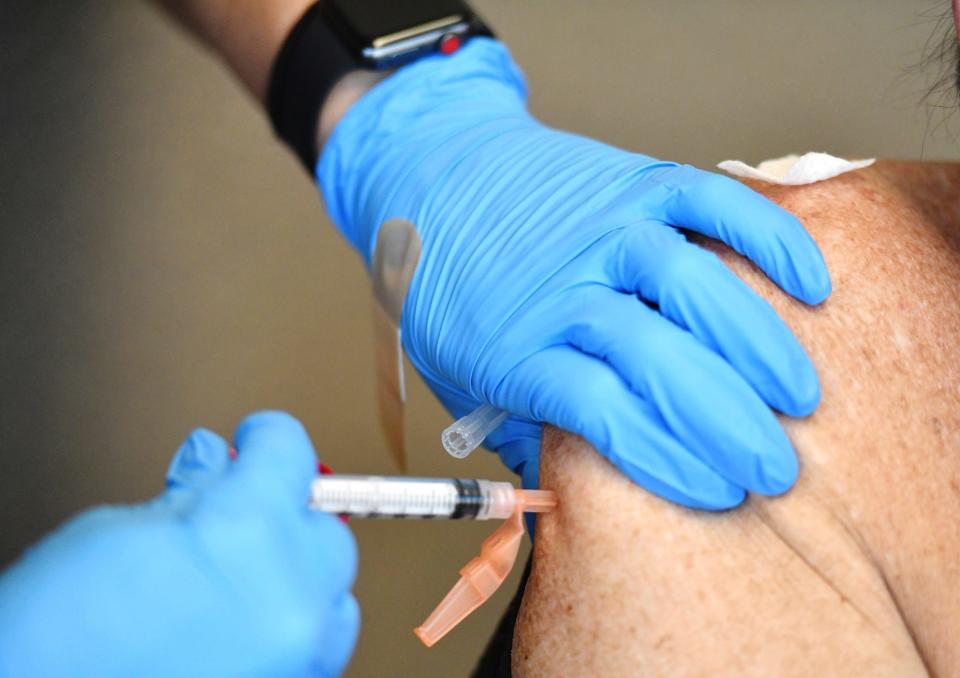Why COVID-19 survivors should only get one dose of mRNA vaccine
During this COVID-19 pandemic that has now been going on for over one year, there are very few things that everyone agrees on. Two things that almost everyone agrees on are: 1) we need to get as many people vaccinated as quickly as possible to prevent hospitalizations, deaths, and the spread of virus variants; and 2) people are tired of modifying their behavior and are eager to return to normal life. This pandemic fatigue is leading some states to relax important interventions such as mask mandates, even with less than 10-15% of their populations vaccinated.
With this backdrop, we believe that COVID-19 survivors should only get one dose of mRNA vaccine (made by Pfizer and Moderna) which would speed the rate of immunization by allowing others to get these additional doses. While we are strong believers that people who have not been infected with SARS-CoV-2 should receive two doses of mRNA vaccine, we also think government official should address the increasing amount of evidence that suggests those who previously had COVID-19 can achieve the same level of immune response with only one dose of a Pfizer or Moderna vaccine.
Modifying how many doses of the vaccine COVID survivors need
There are at least eight publications that have appeared in the last month that have indicated that this may be a reasonable approach. These studies, including from our groups at the University of Maryland School of Medicine and the Icahn School of Medicine at Mount Sinai, have shown that previously infected COVID-19 patients mount an antibody response to a single dose that is equal to or exceeds two doses in those not previously infected. Although not randomized trials, these studies conducted by multiple research groups on different continents provide strong evidence that a single dose of mRNA vaccine may be enough. This is due to the presence of immunological memory and is the reason why most booster vaccines are given as single doses only, while a primary vaccination series can be one or more doses — like the measles mumps rubella (MMR) shots given to infants.

Some countries, including France, have responded to this data modifying their policies and are only administering one dose to previously infected individuals. Canada has recently adopted another strategy to increase the vaccine supply. They are extending the time after COVID-19 infection when someone would qualify for a vaccine to four months (the US only suggests waiting for 3 months). We are in favor of this as a study has shown immunity after infection for at least 6 months, and studies such as ours show immunological memory for at least 9 months.
Wuhan and COVID: Could an accident have caused COVID-19? Why the Wuhan lab-leak theory shouldn't be dismissed
Some argue that we should not modify policies until large, randomized trials are conducted. We disagree with this argument. First, it is important to point out that the large, randomized vaccine trials conducted to test these vaccines for efficacy did not, for the most part, include people who were previously infected. Second, such trials would take over half a year to complete, causing a missed critical window of opportunity.
Freeing up vaccines for more people
How many more people could be vaccinated with a worldwide change in policy of a single dose vaccine for those previously infected with SARS-CoV-2? The figure below demonstrates that by going to a single dose policy, more than 110 million people worldwide who were previously infected could receive only one dose. That would free up more than 110 million doses, allowing much faster protection against the spreading variants, which appear to be more contagious. Doses administered more quickly to additional individuals could prevent tremendous morbidity and mortality from COVID-19.

Prioritize COVID vaccines for inmates: Infectious disease expert, former attorney general
Some have argued against this single-dose policy for COVID-19 survivors, saying it would be too hard to implement if everyone needed a confirmatory antibody test. While this may be a valid point, we don’t think such confirmation is necessary for public health purposes. A medical history of having laboratory-confirmed COVID-19 can be done by self-report, like is done for other parts of the medical history, like a diagnosis of diabetes or asthma. While this system is not perfect (some people may intentionally or non-intentionally check the box), enough vaccine would be freed up to make a difference in the ongoing pandemic. Such a change will free up immunization capacities because not everyone needs to return for a second vaccination. When facing an implementation problem, there are practical solutions, we just need to put in the effort to implement them.
Anthony Harris, MD, MPH, is a professor of Epidemiology & Public Health at University of Maryland School of Medicine.
Florian Krammer, PhD, is a professor of Microbiology at Icahn School of Medicine at Mount Sinai, Global Virus Network Center of Excellence.
Mohammad Sajadi, MD, is an associate professor at the Institute of Human Virology, University of Maryland School of Medicine, Global Virus Network Center of Excellence.
Viviana Simon, MD, PhD, is a professor of Microbiology and Medicine at Icahn School of Medicine at Mount Sinai.
You can read diverse opinions from our Board of Contributors and other writers on the Opinion front page, on Twitter @usatodayopinion and in our daily Opinion newsletter. To respond to a column, submit a comment to letters@usatoday.com.
This article originally appeared on USA TODAY: Why COVID-19 survivors should only get one dose of mRNA vaccine

